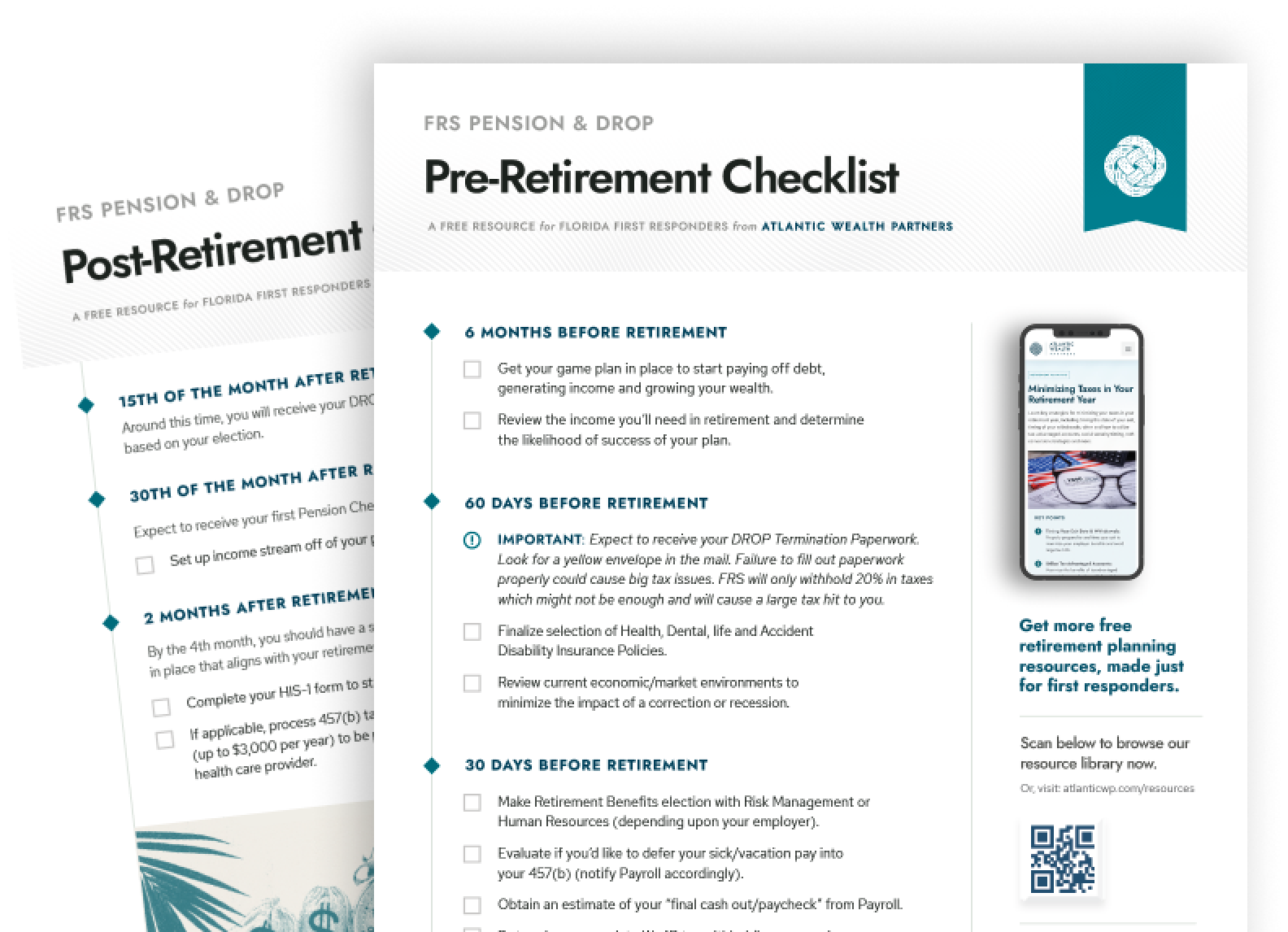As you approach retirement, you might be asking yourself, “Should I put my retirement assets in an annuity?” There are three main types of annuities: variable, fixed-indexed, and fixed. In this article, we explain what makes variable annuities unique, and explore their pros and cons.
What is a Variable Annuity?
A variable annuity is typically set up by depositing a lump sum from another retirement account, like a 401(k) or 457(b), or by funding the account with after-tax dollars, such as money in your checking account. They are usually structured as a deferred annuity where you delay receiving income payments from your contract until some point in the future, allowing time for your balance to grow. They can also be set up as an immediate annuity where you start collecting payments immediately after funding the contract.
How Do Variable Annuities Work?
Annuities are insurance vehicles. Insurance is a contract between two parties where the purchaser pays a “premium” in exchange for “guarantees” against risk. The insurance company then takes those premiums and, using the laws of large numbers, pools risk against other insureds.
Variable annuities are different from fixed and fixed-indexed annuities, where the funds paid to the insurer are invested inside the company’s general account. With a variable annuity, your money is held in a separate account, and you have the opportunity to allocate your investments to a limited selection of variable sub-accounts controlled by the insurance company. These sub-accounts invest your allocated premiums in their underlying portfolios of stocks, bonds, and other marketable investments. The value of your annuity will fluctuate based on the market performance of the investments, similar to a portfolio of ETFs or mutual funds.
Benefits of a Variable Annuity
Higher Potential Returns
If your investments do well, a variable annuity could earn a higher return compared to other types of annuities. They can be an effective way to grow your savings long-term and protect against inflation.
Tax-Deferred Growth
Investment gains in a variable annuity are tax-deferred, meaning you don’t owe taxes until you take money out of the account. This is the same benefit that you would get in a 401(k) or an individual retirement account (IRA). WARNING: Be careful about allocating “extra” after-tax money to these vehicles. While it creates a tax shelter for deferring taxes, when you pull money out later in life, those funds will be subject to a LIFO (last in, first out) tax treatment, resulting in a higher tax liability (at your marginal rate) than what capital gains would be if they were not invested in an annuity.
Riders and Options
Variable annuities come with various “riders” or “options/benefits” that can be added to the base contract at an additional cost. Examples include lifetime income guarantees and return of premium at death guarantees. These can provide added comfort but are often expensive and rarely used.
Drawbacks of a Variable Annuity
No Guaranteed Investment Returns
Variable annuities do not offer guaranteed investment returns. The perceived guarantee of 4% – 6% is typically only on the Income Account Value if you paid for the income rider, not on your Account Value or real money. Poor investments can result in losses.
High Fees
The fees on a variable annuity can be significantly higher than on other types of annuities and similar securities. These include a combination of investment fees and insurance expenses.
Surrender Charges
Variable annuities usually come with a surrender charge that lasts for five to ten years. If you take out a lump sum withdrawal greater than the free withdrawal amount or cancel your contract before then, you will owe a substantial penalty, normally not to exceed 10% (plus taxes).
Recurring Charges
Each month or quarter, your insurance company will debit your cash value to pay the policy’s monthly charges. According to Annuity.org, the average variable annuity charges total 2.3% per year but can eclipse 3.5% depending on your policy.
Variable Annuity Cost Breakdown
- Mortality & Expense Fees (M&E): These compensate the annuity company for running the contract and taking on the risk of making future annuity payments. They could also cover the agent’s commission for selling you the annuity, typically between 6% and 10% of the initial premium.
- Administrative Fees: The annuity company may also charge an additional fee for their administration expenses, a small percentage of your account balance.
- Sub-Account Fees: The investment funds in the variable annuity may charge their own annual fee, similar to the expense ratio on a mutual fund.
- Rider Fees: Additional benefits to your variable annuity, known as riders, come at an extra cost. For example, a rider to guarantee lifetime income will require an additional annual fee based on the income account value.
Example Fee Breakdown:
| Expense Name | Cost |
|---|---|
| Mortality & Expensee Fees | 1.25% |
| Administrative Fees | 0.15% |
| Sub-Account Fees | 1.00% |
| Additional Rider Fees | .75% |
| Total Fees/Expenses | 3.05% |
The Bottom Line
A variable annuity might be suitable for someone who doesn’t mind taking extra risk to earn a higher return. Out of all annuity types, a variable annuity has the highest potential earning power, despite potential investment swings. However, the added cost for the annuity insurance expense (typically higher than average investment expenses) means you might be better off investing your money directly in the market with the assistance of a competent advisor with reasonable advisory fees. That said, there are “stripped down,” low-cost annuities that can serve as prudent tax-deferral/savings vehicles. The devil is in the details.
WORK WITH US
Get expert guidance on annuities.
AWP can help you determine whether a variable annuity is right for you, and guide your efforts to ensure that you are maximizing the tax efficiency of your retirement plan.



